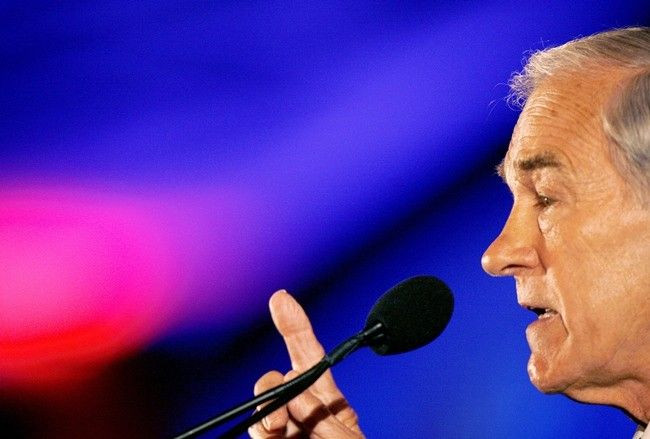Critics set to blast Fed on Paul's monetary policy panel

Three critics of the Federal Reserve are set to testify before Congress on Wednesday in a hearing chaired by Rep. Ron Paul, R-TX, that will focus on the effect of the Federal Reserve's policies on job creation and the unemployment rate.
Two university economists and one from a policy think tank will testify at the morning hearing. Collectively, the critics have previously said the Fed operates for its own advantage, interferes with the market much as a price-control board does, and has not targeted unemployment as much as it has low inflation.
Despite enormous amounts of monetary and credit expansion by the Federal Reserve in recent years, the nation's unemployment picture remains bleak, Paul said on Monday. While many focus on the impact of fiscal policies on employment, the effect of monetary policy often goes unexamined.
Paul chairs the Domestic Monetary Policy and Technology Subcommittee, a part of the House Committee on Financial services.
Paul - who has previously called for the Fed to be abolished, as has one of the witnesses - blames both the Obama administration and congressional Democrats' unsustainable debt and spending along with the Fed's policies for fostering an environment that's bad for business. The Fed has bought $2.3 trillion in assets over the past 3 years.
The hearing, entitled Can Monetary Policy Really Create Jobs?, will focus on the Fed's recent actions, the likelihood those actions will reduce unemployment, and the critical role of the private sector in job creation, he said.
Paul says those policies have keep small businesses from growing and hiring because of continued uncertainty over new taxes, higher interest rates, and the expanding role of government in the economy.
As of February 2010, the U.S. had lost 8.4 million jobs since the start of the recession and the unemployment rate was at 9.7 percent. The rate remained below 10 percent during much of the year. The latest unemployment report released last week showed a 9.0 percent unemployment rate for January.
Fed Vice Chairman Janet Yellen said in a published interview Tuesday that the two rounds of purchases - which have been named by some quantitative easing 1 and 2- will have helped raise private payrolls by about 3 million jobs through 2012.
Witnesses
Thomas DiLorenzo, a professor of economics at Loyola University in Baltimore, Maryland, has previously said the Fed may be the worst government monopoly of all.
Not only does it operate for its own advantage in the name of promoting the public interest, and offer government officials political cover for their self-interested policies, the Fed also allows no escape, he wrote in the April 1997 edition of the Freeman.
DiLorenzo also arranged for Paul to appear at Loyola last year to present his views.
Dr. Paul presents a very convincing case that the Federal Reserve is not only the cause of much of our current economic condition, but is continuing with policies that will lead to greater difficulties in the future, he said ahead of the event last year. In addition to calling for the first audit of the Fed, he also proposes several alternatives for managing the U.S. money supply.
Richard Vedder, a professor of economics from Ohio University, has previously argued to get rid of the Federal Reserve System.
When the central bank manipulates the interest rate, it creates distortions very much like those that are created by price controls, Vedder said in an interview with the Austrian Economics newsletter. The Federal Reserve interferes as much with the market system as a price-control board.
Josh Bivens, an economist at the Economic Policy Institute has said the Fed's stance, as a part of wider set U.S. policies over the past 30 years, have given a rise to inequality in the United States.
Basically the orientation of the Federal Reserve became ... target low inflation at all costs but don't target low unemployment at all costs, he said in a recent interview promoting a book called Designed to Fail.
In the book, Bivens also criticizes government policies that are an all-out assault on workers' right to unionize and trade agreements that are very protective of corporate interests but not protective at all of workers' interests.
© Copyright IBTimes 2025. All rights reserved.





















